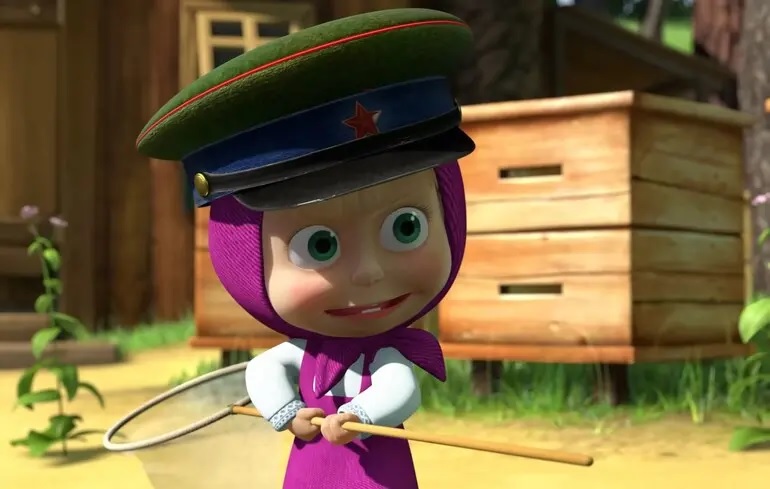The National Police answered whether “Masha and the Bear” has ties to Russia
17 October 18:22
The head of the parliamentary committee on freedom of speech, Yaroslav Yurchyshyn, asked the police about possible links between the Masha and the Bear cartoon and Russia.
In response, the National Police of Ukraine confirmed that the official resources of the animation project are of Russian origin, "Komersant Ukrainian" reports.
The cartoon’s website is registered on a Russian domain, although it redirects to a neutral site.
The project’s pages contain links to the VK social network, which is banned in Ukraine.
The police have stated their readiness to join in blocking the content if the cartoon is recognized as an object of Russian influence.
How the authorities are responding
On behalf of the Cabinet of Ministers, several agencies are working on the issue:
- The Security Service of Ukraine,
- The National Council on Television and Radio Broadcasting,
- THE NATIONAL SECURITY AND DEFENSECOUNCIL,
- MINISTRY OF INTERNAL AFFAIRS,
- Ministry of Culture and Information Policy.
Letters were sent to them asking them to assess the grounds for imposing sanctions and restricting the series’ broadcast in Ukraine.
Why this issue has become relevant
In late August, the Ukrainian-language YouTube channel Masha and the Bear was ranked first among the 20 most popular children’s channels registered in Ukraine.
According to expert Olha Tyshchuk-Volska (Tyshchuk Digital HUB), in 2025 alone, Russians could earn more than $2.4 million from Ukrainian viewers. The total number of video views in Ukraine is over 800 million.
The Russian footprint
The Masha and the Bear cartoon was created by the Russian studio Animacord, which has international licenses for content distribution.
After 2014, the series continued to be broadcast by Ukrainian TV channels, including Inter and 1 1.
As early as 2017, the State Film Agency considered the legality of showing the cartoon due to the presence of Russian propaganda narratives, primarily a positive portrayal of Russian culture, strength, and “generosity.”
Russian cartoons and TV series have repeatedly come under the scrutiny of Ukrainian regulators since 2014.
In 2016-2019, the National Council banned the broadcast of more than 70 films and TV series because of their Russian origin.
In 2022, after the start of the full-scale invasion, Ukraine restricted all Russian audiovisual content on television and streaming services.
If the inspection confirms that the profits from Ukrainian traffic go to Russian legal entities, the animated series may be included in the sanctions list.
This could set a precedent for wider monitoring of children’s content on YouTube, which, despite its Ukrainian localization, has links to Russian copyright holders.









